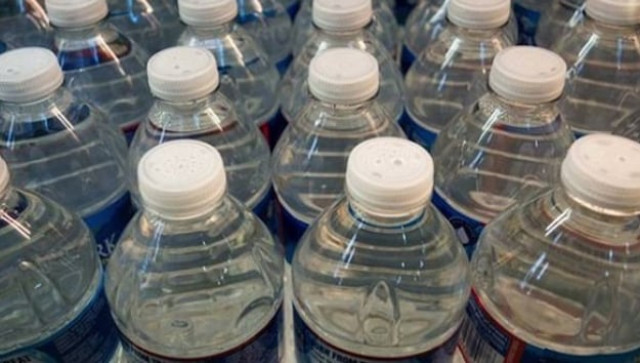In a surprising revelation, the Khyber-Pakhtunkhwa Food and Halal Security Authority and Halal Food Authority has declared that almost 40 percent of the bottled water samples collected throughout the province were deficient and not suitable for human consumption. The findings arose after the end of the first bottled water test campaign throughout the province of the authority.
According to the official report, a total of 156 samples of bottled water of variable sizes, 19 liters, 1.5 liters, 500 ml and 300 ml were tested in the newly established provincial food test laboratory and research center. Of these, 59.61 percent was considered satisfactory, while 40.39 percent failed to meet the quality reference points established by Pakistan standards and the quality control authority.
General Director of Food Security and Food Authority, Wasif Saeed, informed the provincial food minister, Zahir Shah Toru, about the results of the campaign. In addition, he revealed that 56 water source samples were also examined, with 27 passing the quality test and 29 declared poor.
Read: Five employees of the gas company kidnapped in Di Khan
The report highlighted the serious concerns, revealing that 61 samples of bottled water contained dangerous microbial contamination, including coliforms, fecal coliforms, E. coli and Pseudomonas aeruginosa. In addition, two samples contained harmful chemical components. Both findings, warned the DG, raised serious risks to public health.
The data also showed that the 143 active KP water plants collectively produce an average of 419,000 liters of bottled water a day. To the alarming, it was found that more than 117,000 liters of this production were deficient during the trial period, which extended from August 23 to September 19.
In the next phase, the authority will expand its campaign to test water filtration plants and residential water sources throughout the province to safeguard public consumption.
The DG informed the minister that strong fines had been imposed on companies whose samples were found not suitable. The authority also issued recovery directives to take and rule out lower market actions. In addition, production in offensive plants was suspended until corrective measures and fresh samples were adopted eliminated quality tests.
Read too: P&G To close the manufacture in Pakistan, it moves to the mode of distribution of third parties
Toru welcomed the campaign findings, describing them as a milestone to protect consumer rights. He commented that, for the first time, KP had launched such a complete test campaign thanks to the establishment of the Provincial Laboratory of Food Tests.
“In the directives of Prime Minister Ali Amin Gandapur, we have initiated large -scale food and beverage tests to raise production standards and guarantee compliance,” he said.
Promoting severe action against offenders, added the minister: “We will eliminate lower and dangerous food and guarantee quality foods throughout the province. By guaranteeing safe foods, we will finally empty hospitals.”
In addition, he assured that the government was establishing a solid food testing regime not only to safeguard public health but also to support legitimate companies to improve their products in line with national and international standards.




